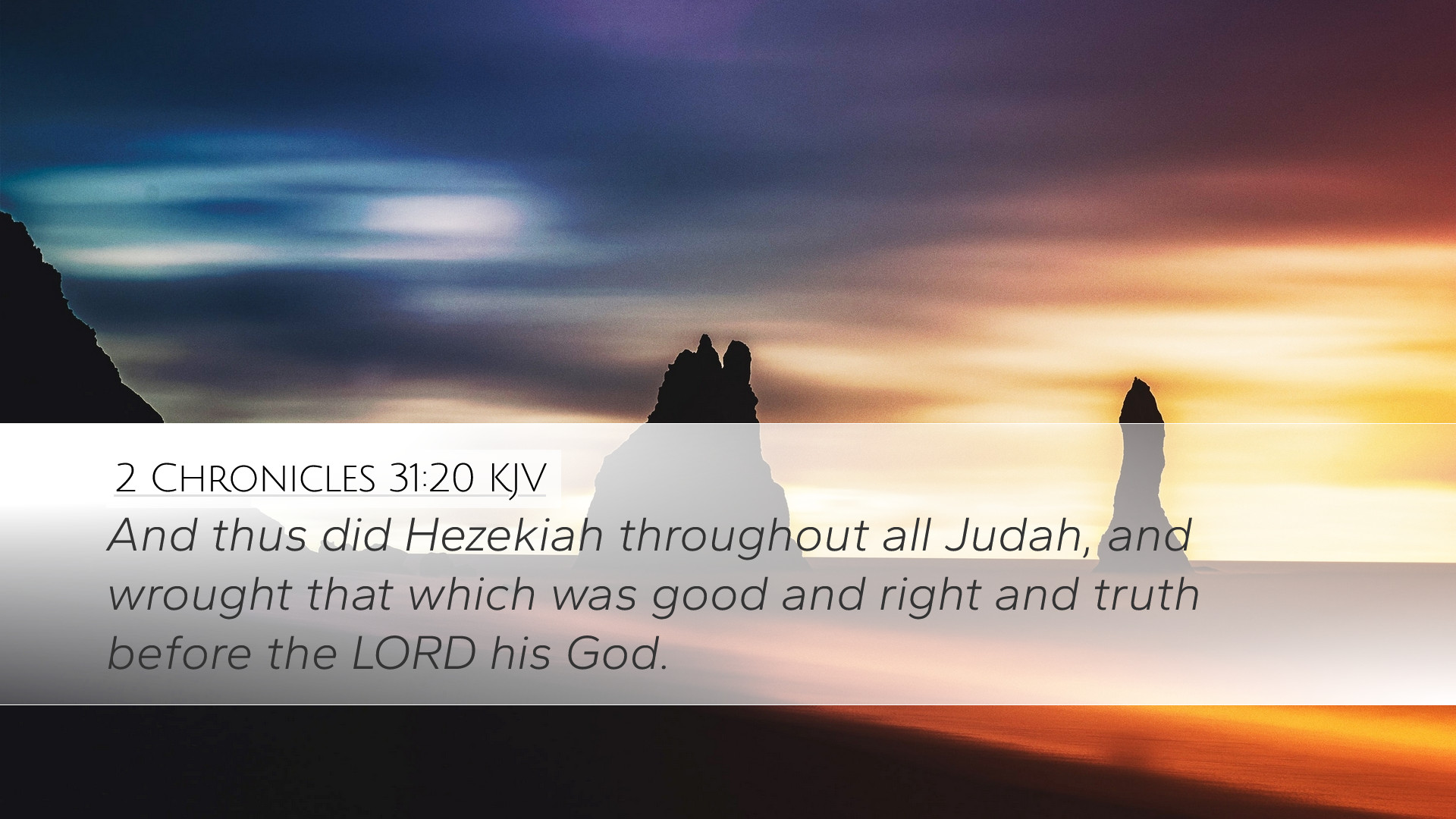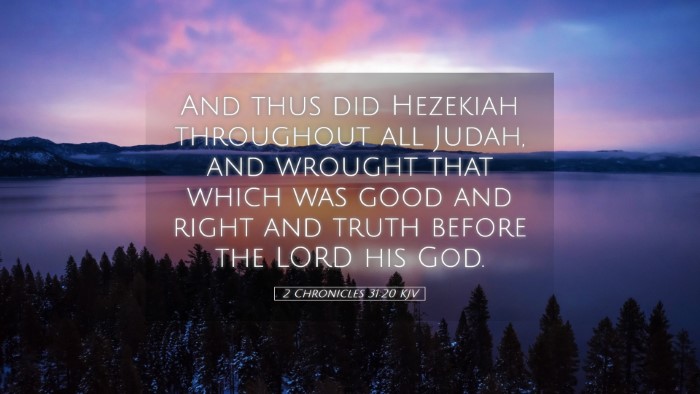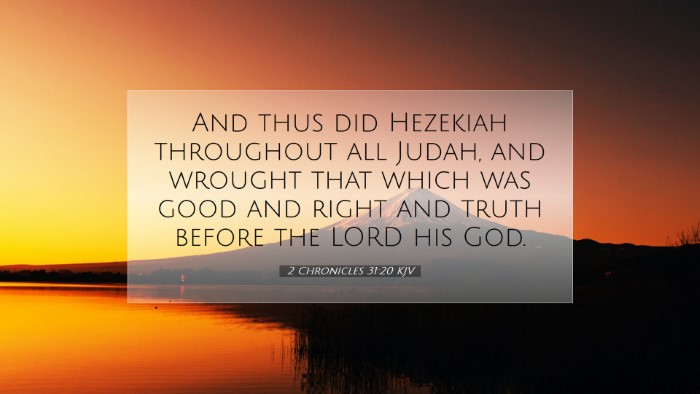Commentary on 2 Chronicles 31:20
Verse Context: 2 Chronicles 31:20 states, "And thus did Hezekiah throughout all Judah, and wrought that which was good and right and truth before the LORD his God." This verse highlights King Hezekiah's committed efforts to reform the religious practices of Judah, seeking to restore true worship of Yahweh.
Hezekiah's Religious Reforms
Historical Background: The reign of Hezekiah (circa 715-686 BC) is noted for significant religious reforms. His ascension to the throne followed a period of spiritual decline under his father, Ahaz. Hezekiah’s proactive stance in restoring worship and temple practices was crucial for the spiritual revival of the nation of Judah.
Matthew Henry comments on this by indicating that Hezekiah was diligent in eliminating idolatrous practices that had pervaded the land, emphasizing the king's role as a spiritual leader.
Good, Right, and Truth
Christian Ethics: Hezekiah's actions are described in terms of good, right, and truth. According to Albert Barnes, these three attributes reflect a holistic approach to righteousness. They represent moral goodness, alignment with divine standards, and adherence to authentic worship.
Hezekiah's Resolve: Adam Clarke elaborates that Hezekiah’s leadership was characterized by resolute strength, not only in words but in action. His reforms included restoration of the Passover and re-establishing the priesthood, thus igniting genuine worship among the people.
The Impact of Leadership on National Spirituality
Influence on the People: The actions of a leader profoundly affect the spiritual state of a nation. As Hezekiah pursued righteousness, so did the people of Judah respond positively, ultimately leading to a national revival. Matthew Henry asserts that a godly leader instills courage and encourages the people to follow divine paths.
The Role of the Priesthood
Supporting Worship: In his reforms, Hezekiah re-established the priestly functions, crucial to maintaining the covenant relationship between God and the people. Albert Barnes notes that the priests played an essential role in mediating between God and Israel, hence strengthening the community’s worship experience.
Lessons for Contemporary Leadership
Spiritual Responsibility: Hezekiah’s reign presents a case study in spiritual responsibility for leaders today. Adam Clarke points out that leaders in faith communities must understand the weight of their influence on congregational life and spiritual integrity.
- Accountability: Pastors and church leaders are called to uphold the truth of the Gospel, reflecting a life consistent with biblical standards.
- Encouragement of Righteousness: They must inspire congregants to pursue holiness and righteousness in their lives, bringing about collective spiritual health.
- Restoration Efforts: Reforms may be necessary where compromise has entered, emphasizing worship in spirit and truth.
Conclusion: The Call to Action
Personal Reflection: In closing, Hezekiah’s story urges both leaders and believers to engage deeply with God’s commandments. Matthew Henry encapsulates the essence of the verse: to do what is good, right, and true in the eyes of the LORD, which remains a timeless charge for all generations.
As we consider this verse, let it serve as a reminder of the potential impact of one leader’s commitment to God on an entire nation. May we, like Hezekiah, embrace the call to lead with integrity, courage, and devoted service to our God.


